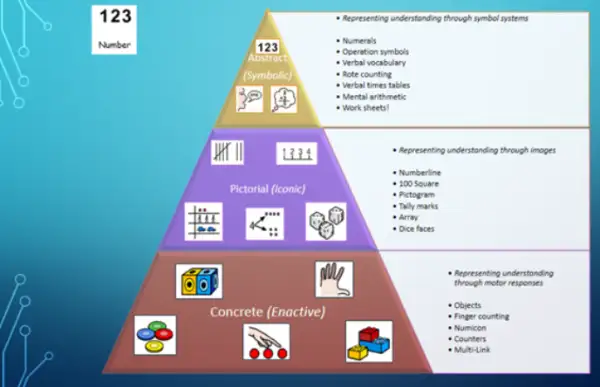Maths
‘Maths is more than numbers and numbers are more than counting.’
STEAM Skills for Learning
Pupils have opportunities to experiment, explore, create, problem solve and enquire through our STEAM based practical activity sessions. It is important during this time that pupils can choose an activity that promotes their interest and motivation. It will also create opportunities for some pupils in KS 4 to select activities that will introduce them to different experiences and prepare them further to consider what job skills they may need for the future. These sessions will also be used, where appropriate, to develop leadership skills in KS 4.
Overview of Curriculum Area: Intent
| EXPLORERS Oceans and Harbour | Our youngest pupils are learning to engage in activities, Maths follows the Early Years Framework enabling pupils to develop their wider skills. Pupils will engage in problem solving, life relevant activities as well as using concrete resources to develop their understanding of basic concepts to embed their understanding. |
| EARLY DISCOVERERS Starfish, Oysters and Octopus | Maths learning is not subject specific and there is a broad range of learning opportunities to develop their problem-solving skills. Early Discovers engage with problem solving activities through a range of concrete resources to develop their basic concepts. Maths skills are woven through all learning situations that the pupils encounter during the day including morning routines, playtime, snack times, lunchtimes or to anticipate and predict changes. |
| DISCOVERERS Coral, Jellyfish and Dolphin | Pupils are learning functional maths skills through opportunities in the community. Problem solving continues to be woven through all learning situations that the pupils encounter during the day. Pupils also explore Maths concepts and number skills through practical and life relevant situations such as cooking, shopping and community visits. |
| EARLY ENQUIRERS Penguin, Sea Lions, Sea Turtles | Pupils begin maths specific learning using concrete resources and opportunities for practical application. Our pupils begin their more formal maths journey through developing skills in number and geometry, where relevant this is applied to real life contexts through the thematic curriculum. |
| ENQUIRERS Puffins, Lobsters, Seahorses, Magna 1 | Pupils continue to develop their Maths skills through a sequenced curriculum to ensure the development of knowledge and skills, this is taught using practical and life relevant approaches through our thematic curriculum. Practical opportunities like running the café and shopping will encourage pupils to use transferrable skills. Pupils on this pathway will be preparing to take accreditations in Maths. These accreditation routes will vary based on ability, some pupils will work towards functional skills exams and others will be working on OCR units to enhance their maths knowledge. Pupils will complete KS 4 Maths with recognised qualifications. |
| NAVIGATORS Magna 2, Manta, Orca | Maths learning is at greater depth to allow pupils to access higher-level academic qualifications. Pupils develop the skills they have learnt throughout their education and work towards Functional Skills Maths where they will complete exams at their expected level. Pupils leave school with a nationally recognised qualification in Maths which can then be built upon in Post-16. |
| POST 16 | Pupils will either continue their functional skills learning and build upon the skills taught in Key Stage 4, with as many life skills opportunities as possible or use their maths skills in work placement opportunities. |
| Cross-curricular Links | How does Maths support this? |
|---|---|
| STEAM | Geometry, shape, measure, statistics calculation skills are all essential foundational elements of STEAM. Securing pupils’ knowledge in these areas allows them to access more aspects of the curriculum, at a more challenging level. |
| English Skills | Reading comprehension is fundamentally important for pupils to access written problem solving. Number formation also involves the same skill sets and fine motor skills as letter formation. Use of manipulatives such as cubes, blocks, counters and dice also supports development of fine motor skills. |
| PE | PE provides fantastic opportunities for enactive maths learning and practical application of number and measure skills. |
| Food Technology | Food Technology and cooking require understanding of measure and time and provides a different context to learn and apply the mathematical skills. |
| Forest Schools | Forest Schools is also another enactive opportunity in a less familiar context where pupils are free to explore and learn at their own pace. |
| SMSC and British Values | The awe and wonder of mathematics is shared with the children and helps to explain the world and the mathematical patterns that occur such as the symmetry of snowflakes or the stripes of a zebra. We talk about the wow factor when the pupils make connections in maths. Social education in Maths gives the greatest opportunity for pupils to work together collaboratively during exploratory work. |
Curriculum Support
Provides support to key groups of pupils across the school as identified by teachers and progress data; PPG pupils, high achievers and those who require support to access exams. This supported happens in small groups in class and some 1:1 sessions and can use Dynamo Maths to support this. Its strength lies in the way it offers multiple engagement routes so that the same skill is learned and consolidated in different ways whilst harnessing the pupils’ senses, emotions, verbal, visual, auditory and kinaesthetic skills.
Extra Opportunities/ Celebrating Maths
- Maths is the underpinning academic component for many of our sports activities, secure knowledge of ordinal numbers allows us to celebrate our success!
- We celebrate maths across the school on World Number day, and throughout that week run a variety of challenges from coin stacking to whole school bingo to raise awareness of the importance and relevance of Maths.
- Maths skills also play a key role in our regular enterprise activities such as the Christmas Fayre, coffee mornings and activity planning.





